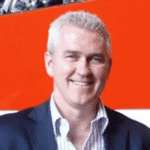‘Spectatorism is a modern disease from which many suffer. Symptoms include a stubborn refusal to act, combined with a strong preference for observation and criticism rather than participation…’
‘Among spectatorism’s victims are those academics and writers who like to theorise rather than take part…’
The above quotes (and the final one below) were from Luke Johnson’s excellent editorial in The Sunday Times (Business) on 17 April (the concept of ‘spectatoritis’ is accredited to Kurt Hahn, founder of Outward Bound).
The general theme of Johnson’s article was one of the gulf between standing on the sidelines theorising and being a principal, responsible for action.
In practice, one sees sideline activity even from those with responsibility for action. Possibly the most striking current example is Europe’s humanitarian crisis. Whilst politicians bicker, thousands live in camps having undertaken the most harrowing journeys from their own lands.
In this context, it was interesting to see the example of the Pope who, after visiting Lesbos recently, took 12 refugees back to Vatican City with him. Religious leaders are, almost by definition, professional spectators and voices from the sidelines.
However, millions choose to follow them of their own free will, and so by any sensible definition, they are also leaders in the most literal sense. The essence of leadership though, is not what you say, or what you aspire to; it’s what you do.
Whilst politicians bicker, thousands live in camps having undertaken the most harrowing journeys from their own lands.
And with this one simple action, Pope Francis stepped off the sidelines, walked straight to the penalty spot and, under the harsh glare of a crowd of millions, scored. Don’t judge me on my coaching. Judge me on my big match temperament. No more pontificating for this Pontiff!
One could argue it was tokenism, merely symbolic. But that was the whole point. And it’s what so many leaders forget: the symbolism of their behaviour.
Practically, you’ll get what you reward. Emotionally, you’ll get what you inspire.
People judge you as a person and as a leader, not by what you say or think, but by what you do. Leadership is a moral and emotional activity.
There are two primary drivers of your people’s commitment to the cause. Practically, you’ll get what you reward. Emotionally, you’ll get what you inspire.
One could argue it was tokenism, merely symbolic. But that was the whole point.
Getting your hands dirty, having skin in the game, walking the talk… It’s easy to forget what life was like when you were younger and more junior. You really noticed what senior people did.
Now you’re senior, you still see yourself as the same person. However, others notice your every move.
And they respect somebody who, they know, is not asking them to do anything they wouldn’t do themselves.
Bullfight critics ranked in rows
Crowd the enormous plaza full;
But he’s the only one who knows
And he’s the one who fights the bull.
-Domingo Ortega
‘Spectatorism is a modern disease from which many suffer. Symptoms include a stubborn refusal to act, combined with a strong preference for observation and criticism rather than participation…’
‘Among spectatorism’s victims are those academics and writers who like to theorise rather than take part…’
The above quotes (and the final one below) were from Luke Johnson’s excellent editorial in The Sunday Times (Business) on 17 April (the concept of ‘spectatoritis’ is accredited to Kurt Hahn, founder of Outward Bound).
The general theme of Johnson’s article was one of the gulf between standing on the sidelines theorising and being a principal, responsible for action.
In practice, one sees sideline activity even from those with responsibility for action. Possibly the most striking current example is Europe’s humanitarian crisis. Whilst politicians bicker, thousands live in camps having undertaken the most harrowing journeys from their own lands.
In this context, it was interesting to see the example of the Pope who, after visiting Lesbos recently, took 12 refugees back to Vatican City with him. Religious leaders are, almost by definition, professional spectators and voices from the sidelines.
However, millions choose to follow them of their own free will, and so by any sensible definition, they are also leaders in the most literal sense. The essence of leadership though, is not what you say, or what you aspire to; it’s what you do.
Whilst politicians bicker, thousands live in camps having undertaken the most harrowing journeys from their own lands.
And with this one simple action, Pope Francis stepped off the sidelines, walked straight to the penalty spot and, under the harsh glare of a crowd of millions, scored. Don’t judge me on my coaching. Judge me on my big match temperament. No more pontificating for this Pontiff!
One could argue it was tokenism, merely symbolic. But that was the whole point. And it’s what so many leaders forget: the symbolism of their behaviour.
Practically, you’ll get what you reward. Emotionally, you’ll get what you inspire.
People judge you as a person and as a leader, not by what you say or think, but by what you do. Leadership is a moral and emotional activity.
There are two primary drivers of your people’s commitment to the cause. Practically, you’ll get what you reward. Emotionally, you’ll get what you inspire.
One could argue it was tokenism, merely symbolic. But that was the whole point.
Getting your hands dirty, having skin in the game, walking the talk… It’s easy to forget what life was like when you were younger and more junior. You really noticed what senior people did.
Now you’re senior, you still see yourself as the same person. However, others notice your every move.
And they respect somebody who, they know, is not asking them to do anything they wouldn’t do themselves.
Bullfight critics ranked in rows
Crowd the enormous plaza full;
But he’s the only one who knows
And he’s the one who fights the bull.
-Domingo Ortega





